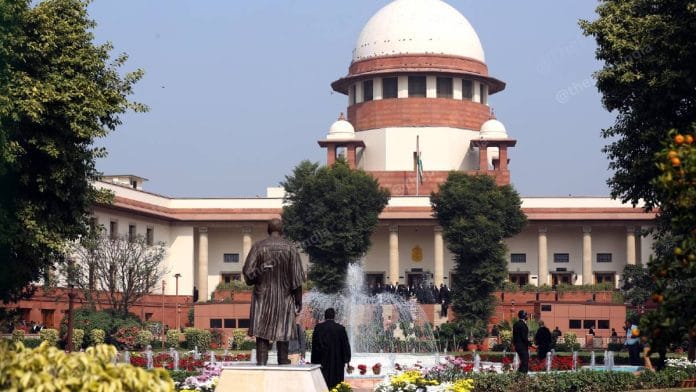New Delhi: The Supreme Court Tuesday quashed a government notification partially to set aside the exemption given to industrial sheds and educational institutions from obtaining prior environmental clearance for a new project.
This exemption was under the Environmental Impact Assessment (EIA) Notification, 2006, that defines a regime under which any building or construction project with a built-up area equal to or greater than 20,000 square metres required prior environmental clearance.
In January this year, the 2006 notification was amended to introduce a new clause that said projects such as industrial sheds, schools, colleges, and hostels for educational institutions would not require prior environmental clearance, provided they undertake measures such as sustainable environmental management, solid and liquid waste management, and rainwater harvesting.
However, the SC struck down this amendment, saying the exemption was granted without sufficient justification. The guidelines issued for adherence to environmental aspects did not provide for expert-led evaluation by a body such as the State Environment Impact Assessment Authority (SEIAA).
“We see no reason behind the exemption of the 2006 notification for industry and educational buildings. If any construction activity of an area more than 20,000 sqm is carried out, it will naturally have an effect on the environment, even if the building is for educational purposes. We see no reason to discriminate against the other buildings with the buildings constructed for industrial or educational purposes. It is common knowledge that education is no more a merely service-oriented profession. It is common knowledge that education has nowadays also become a flourishing industry,” the bench led by Chief Justice B.R. Gavai observed, as it quashed the notification partially.
The court emphasised that the nature of construction activity was relevant for environmental scrutiny and not the end-use. “We see no reason behind the exemption of the 2006 notification for the industry and educational buildings,” it said.
Maintaining that natural resources must be held in trust for future generations, and development must be balanced with environmental protection, the court observed: “A country cannot progress unless development takes place. This court in a catena of decisions has adopted the principle of sustainable development.”
The court’s judgment was passed on a petition filed by Vanashakti which approached the court challenging the notification. It was the petitioner’s contention that exemption to industrial and educational buildings up to 1,50,000 square meters from the EIA regime, diluted the 2006 framework without scientific basis or reason.
The court, however, did not disturb the remaining parts of the notification, including the revised framework that allowed the SEIAAs to process environmental clearance.
In doing so, it accepted government counsel Additional Solicitor General Aishwarya Bhati’s submission that given the high number of construction projects in the country, it was not feasible for the Ministry of Environment, Forest and Climate Change (MoEFCC) to assess all such projects nationwide.
“We see no reason why [SEIAA] should not be permitted to consider the proposals pertaining to the projects in their respective States if it is a properly constituted body in accordance with the statute,” the order stated.
(Edited by Viny Mishra)
Also read: Supreme Court empowers pollution control boards to levy preventive damages for environmental harm






